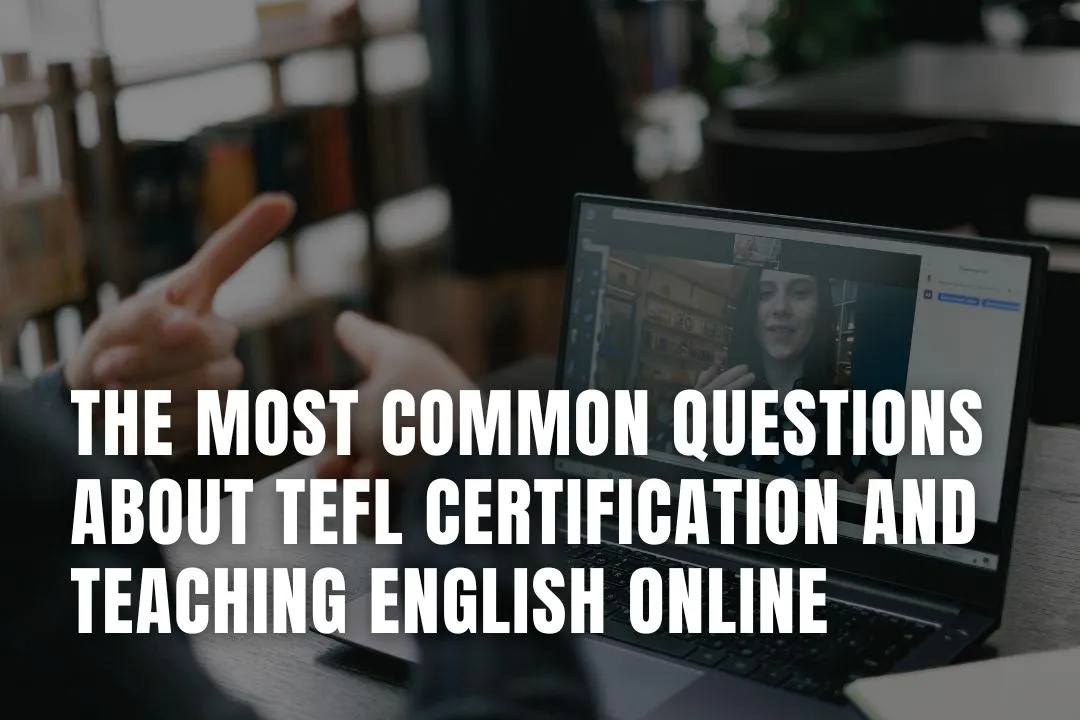
Editorial Disclaimer
This content is published for general information and editorial purposes only. It does not constitute financial, investment, or legal advice, nor should it be relied upon as such. Any mention of companies, platforms, or services does not imply endorsement or recommendation. We are not affiliated with, nor do we accept responsibility for, any third-party entities referenced. Financial markets and company circumstances can change rapidly. Readers should perform their own independent research and seek professional advice before making any financial or investment decisions.
The global demand for the English language is constantly booming. In fact, over 1.5 billion people are currently learning it worldwide. This growing trend has fueled the rise of TEFL (Teaching English as a Foreign Language) as both a career path and a lifestyle choice.
Whether you think of teaching in Asia or giving online lessons in South America, it's easier than ever to get started. And it’s not just about travel anymore. For many, it is a chance to explore flexibility and connect with learners across cultures from anywhere in the world.
The online English teaching market is projected to increase year by year. But with so much information out there, where do you start? It’s easy to feel overwhelmed. That’s where this article comes in. Using insights, we will break down the most frequently asked questions about the certification and teaching the language online. Let’s dive in!
This term stands for Teaching English as a Foreign Language. It includes teaching English to non-native speakers in countries where it is not the primary language. For that purpose, a certification is typically required from a credible provider, which verifies that you have the skills and knowledge to teach the language effectively.
The good part is that you can find such platforms online. However, make sure that you choose the provider whose Online TEFL Courses equip you with the given prospects, like:
In fact, some platforms offer specialised training, job placement support, and expert mentorship. If you find so, then you can begin your journey to become an expert.
ChatGPT is becoming a handy tool for teachers, especially those working online. It helps create lesson plans, generate grammar explanations, and come up with quick conversation prompts. Also, for new teachers, it can be a confidence booster by offering ideas and feedback.
Likewise, it is also useful for students. They can practice writing or speaking and get instant corrections and suggestions. This is something that was not possible outside class before.
Lastly, of course, AI has its limits. It can’t understand cultural context or build real relationships like a teacher can. But as a support tool, it’s becoming a practical part of the modern toolkit.
One of the biggest myths about this certification is that you need to be a licensed teacher or have a teaching degree. By the way, this is simply not true.
No doubt, having a degree can open more opportunities in countries where there are strict visa requirements. However, many online TEFL jobs don’t require a degree at all. What matters most is the traits that you possess, such as:
Such courses have come a long way. Those days are passed when boring PDFs and endless multiple-choice quizzes were the ways to learn. Today’s programs, especially those from reputable providers, are interactive, multimedia-rich, and tutor-supported.
You can expect the following advantages from such courses. Have a look!
Courses are self-paced, meaning you can study from anywhere, at any time. This is a good choice for people balancing work, studies, or travel. And since employers now widely recognise online certification, there’s no downside to choosing this flexible option.
Yes, every TEFL explorer absolutely can make money through it. Even, in many cases, quite a bit more than you'd expect.
Online teaching jobs vary greatly depending on your availability, student demand, and the platforms you work with. Some teachers treat it as a part-time side hustle, earning $10–$20 per hour. On the other hand, some build full-time incomes or even launch their own teaching businesses.
Some of the careers you can choose from are:
A lot of confusion and questions in the beginning may make TEFL feel overwhelming. However, these days, tools like ChatGPT plus reputable providers make the journey much easier.
Last but not least, whether you're thinking of a career change or a chance to travel the world, such courses are your gateway to a new chapter.
Not always. While a degree can open up more opportunities, especially for in-person teaching in countries with strict visa rules, many online teaching jobs do not require one. The most important things are your command of English and a quality TEFL certification.
Yes, you certainly can. Your income will depend on your availability and the platforms you use. Some people teach part-time for extra money, while others build a full-time career or even launch their own teaching business.
A good online TEFL course should provide at least 120 hours of certified instruction, which is the industry standard. Look for courses that include interactive elements like video tutorials, practical case studies, and offer ongoing support from experienced tutors.
Absolutely. AI tools are great for support, helping with lesson plans or giving students practice. However, they cannot replace the human connection, cultural understanding, and personalised guidance that a qualified teacher provides.